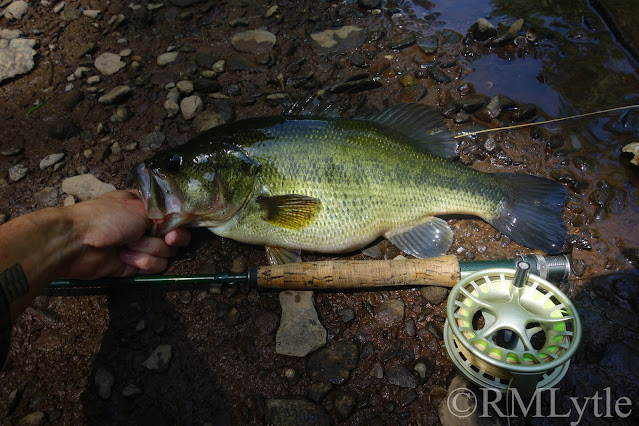Yesterday morning I opened up an email from CT DEEP with the subject line "Announcing CT's Draft Bass Action Plan", and thought to myself, "Oh boy, here we go".
For context, largemouth and smallmouth bass are introduced species in CT, often fitting the descriptor invasive by colonizing previously uninhabited waters, disrupting native species, and generally proliferating to a high degree. Both species, though largemouth in particular, are doing plenty well in most CT waters. I personally very much enjoy fishing for both introduced black bass species but also recognize the damage they do, and in many cases I legally remove them from waters where they present a threat to sensitive natives like brook trout, slimy sculpin, bridle shiners, or banded sunfish, as well as non-fish endangered species. Black bass are also arguably the most popular game fish in the United States and are subsequently a notable economic driver and resource. Unfortunately, this puts them in line for management change ahead of native species that are often more or equally as impacted.
In the introduction of the draft action plan, authored by Ed Machowski, Andrew Bade, Mike Beauchene, and Chris McDowell, a blatant falsehood is mixed into accurate statements: "The Connecticut Department of Energy and Environmental Protection (DEEP), Fisheries Division recognizes that black bass (Largemouth Bass and Smallmouth Bass) are a tremendous natural resource that provides outstanding ecological, social and economic benefit to the state of Connecticut"(Connecticut's Bass Action Plan, 3)
Black bass are neither a natural resource nor something that provides an ecological benefit. Their presence in CT is entirely unnatural, and certainly an ecological net-negative as they disrupt the natural balance of the ecosystems they're added to. So any need to manage, restore, or protect bass and bass fisheries in CT shouldn't be leaning on any sense of preserving nature or doing environmental conservation. It is frustrating that this draft plan opens on that note, and for me it sets a tone that is predicated on a lie. The main driver for bass management is economic. Through sales tax, license purchases, and tournaments, bass fishing is a huge economic driver. It is also popular enough that if a lot of anglers don't like their experiences bass fishing in CT, they're going to make their voices heard about it. That's what drives this need to manage bass. Not ecology. The authors should remove such statements from the draft entirely as they are simply inaccurate and paint it in a light of environmental conservation when it is simply not.
Moving away from that, the rest of the draft is long but concise, data rich, and in many ways well-intentioned. Though it still concerns me that it is clear a lot of resources are going to go to managing two abundant, extremely successful species, there are parts of the plan that I like. In particular, the plan addresses aquatic vegetation management. In CT there are two main methods of lake plant reduction, triploid grass carp and herbicide, and neither one is a good thing. They reduce habitat for a huge array of species, including many natives. Curbing both is an excellent idea and should be moved forward with regardless of its impact on black bass. A second plan I'm strongly in favor of is to work with water management companies to open up reservoirs to public fishing. Well regulated, there is no reason not to allow fishing in drinking water reservoirs. Minor restrictions on tackle and access (protecting important intake and outtake equipment, reducing contamination risk, etc.) are really all that would be necessary. Many reservoirs already permit access to surrounding land for passive recreation anyway, and providing more public fishing access to fisheries is something I'm generally in favor of, particularly strong sustainable fisheries like black bass that are under little to no threat of extirpation or depletion by angler pressure.
My hope is that CT DEEP will move forward with this plan but remove any language that makes it seem like it provides any ecological benefit, it is absurd to suggest protecting introduced non-native fauna does any such thing. There are some decent ideas within, though it frustrates me that the same resources and effort aren't being put towards many of the states at-risk natives. I'm sure that, regardless of this plan, black bass will remain a very viable and productive fishery in CT for decades to come. They're almost unavoidable.
Thank you to my Patrons; Erin, David, John, Elizabeth, Brandon, Christopher, Shawn, Mike, Sara, Leo, Franky, Geof, Luke, Noah, Justin, Sean, Tom, Mark, and Jake for making Connecticut Fly Angler possible. If you want to support this blog, look for the Patreon link at the top of the right side-bar in web version.


Well said and well argued. My only suggestion, Rowan, is that you add recommendations on steps like-minded angler should take to encourage sound policy. Thanks for your advocacy.
ReplyDelete